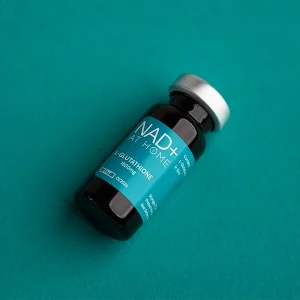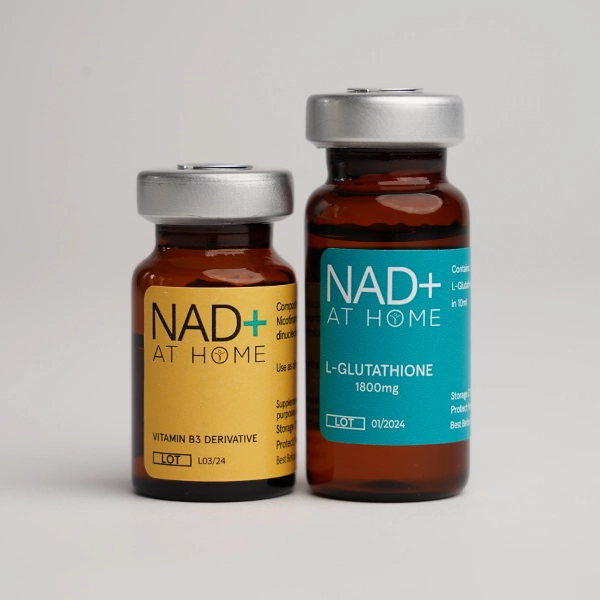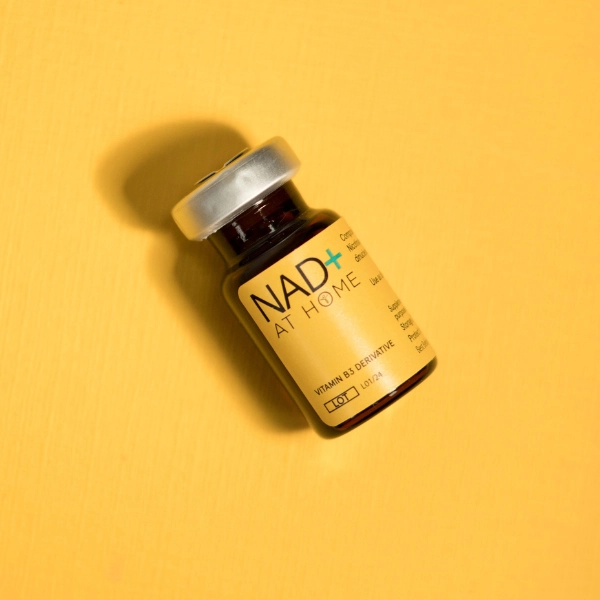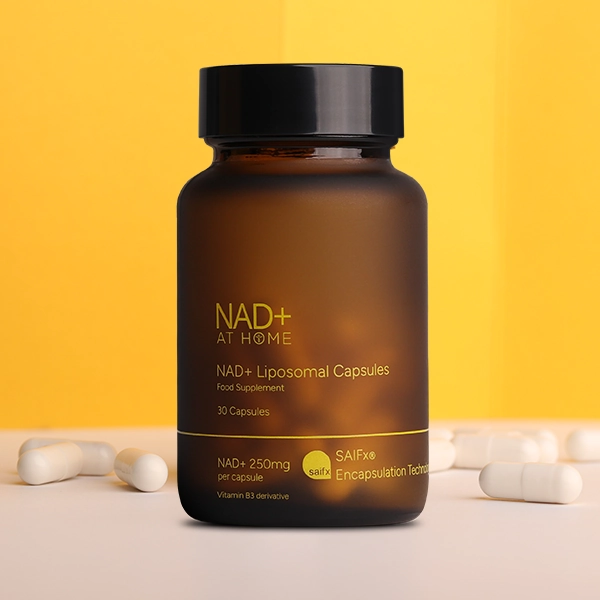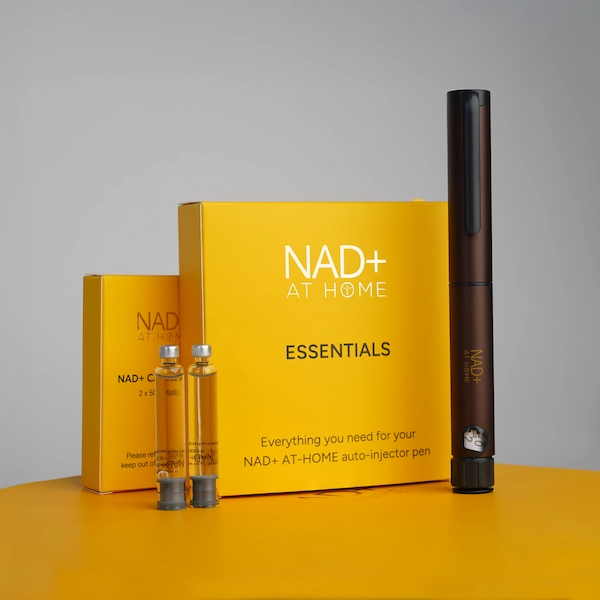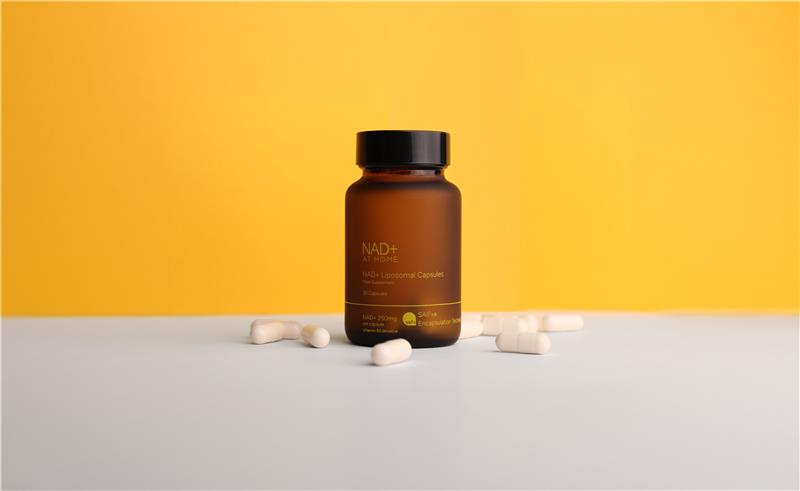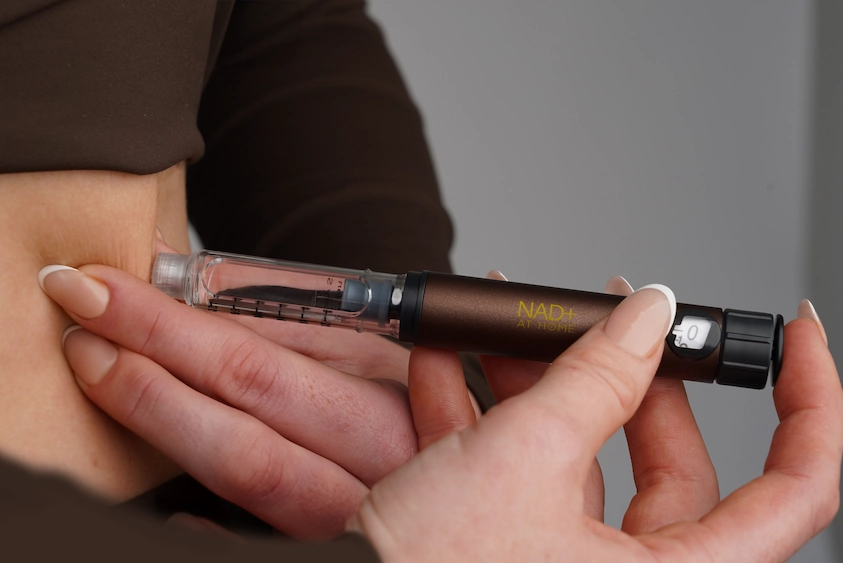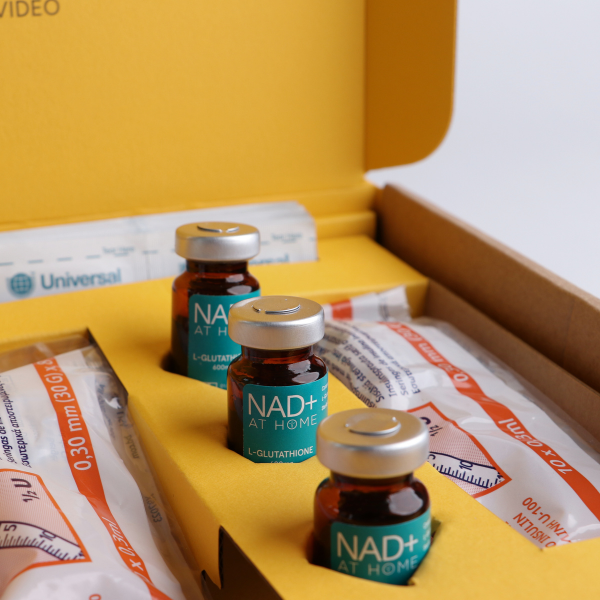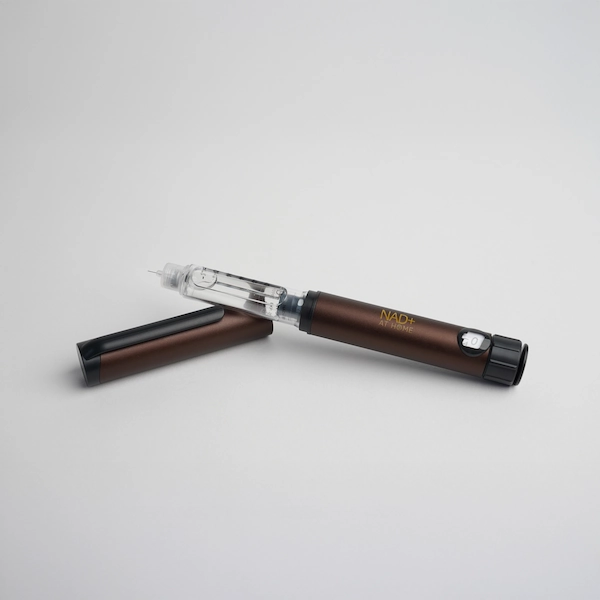More than ever, people are more aware of their health and how to maximise their bodies’ capabilities. Ideas around longevity and wellness are booming currently, and at the centre of it all is NAD+.
Even if you are not fully entrenched in the longevity and biohacking world, you may have heard of NAD+, as plenty of celebrities from Jennifer Aniston to Gwyneth Paltrow have endorsed it as the go-to supplement.
Closely linked, but maybe not as well known, is NADH. You should know the difference between NAD+ and NADH, how they can help and which supplement is right for you.
What Are NAD+ and NADH?
NAD+ and NADH are different but also the same. They are two different forms of the same coenzyme, NAD, which is found in every living cell. A coenzyme is a sort of helper which aids other enzymes in catalysing chemical reactions.
- NAD+ is short for Nicotinamide Adenine Dinucleotide. The + means that it is the oxidised, or charged, version of NAD. This version of NAD is capable of accepting electrons from other molecules via oxidation reactions.
- NADH is the reduced form of NAD. The H stands for hydrogen and means that it carries a charged hydrogen molecule and two electrons. When NAD+ accepts those electrons, it becomes this reduced form. NADH then donates electrons (energy) to where it is needed and turns back into NAD+.
This constant back and forth between NAD+ and NADH produces many benefits for your body. They are integral to cellular energy production, helping control energy metabolism and are involved in many processes in the brain.
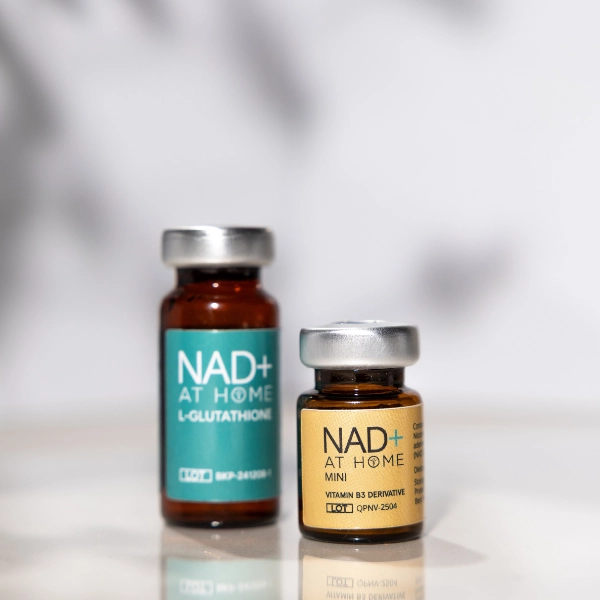
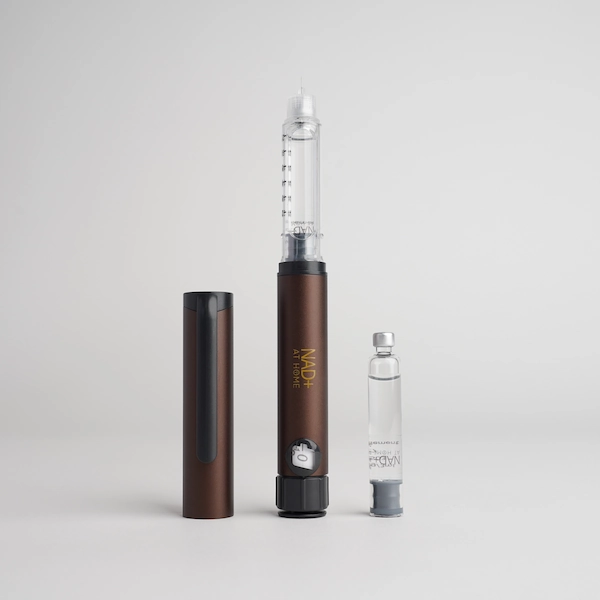
The Science Behind NAD+ and NADH
These two compounds are less separate entities and more two parts of a whole. They are involved in the NAD redox cycle, with NAD+ being reduced to NADH and oxidised back.
NAD+ is the empty delivery van that gets loaded up, accepting electrons, and NADH is the driver that makes the deliveries. NADH donates electrons to the electron transport chain in the mitochondria, helping to create ATP (adenosine triphosphate), a crucial enzyme that helps power endless cellular processes.
This balancing act is also known as the NAD+/NADH ratio. As we age, it seems that NADH goes up, skewing the ratio. This imbalance affects your cells’ efficiency in producing energy, and as NAD+ declines, your body starts to show more visible signs of ageing and slows down.
How They Differ in Function
NAD+ has a higher bioavailability than NADH, meaning it can be more readily absorbed and utilised by cells. This is because NAD+ is used in many more processes than NADH, which is just the carrier for energy, involved in fewer processes.
NAD+ has more wide-ranging uses overall, but they are both useful in mitochondrial support, detoxification, brain health, and ageing. NAD+ is more about maintenance, whereas NADH is important for energy.
Oftentimes, when talking about boosting NAD+, precursors are what are being talked about. These are simpler compounds that are easily converted into NAD+ and have a higher bioavailability.
It’s important to reiterate that whilst they have different functions, you can’t really have one without the other. The back and forth is what produces the benefits that we are after.
Supplementation: NAD+ vs NADH
When it comes to taking an NADH supplement vs NAD+, most people go for the latter. As stated before, your body can easily convert NAD+ to NADH, but the other way takes significantly more energy. NAD+ is also the more stable form, though in its pure form suffers degradation. This means that the delivery method matters.
Your body’s absorption of NAD+ is more efficient than NADH as well, which means it may have more effect on you.
As mentioned above, there are many types of delivery methods for supplementation. They include:
- – Oral: This is the most common choice of supplement. Easy to take and integrate into your routine. The downside is that the absorption rate can be lower. However, liposomal capsules are not broken down in the digestive system, increasing bioavailability.
- – IV: This is when NAD+ is delivered straight into the bloodstream, maximising absorption and bringing fast-acting outcomes.
- – Sublingual: These supplements dissolve under the tongue. There is quicker absorption through the mucous membranes and high bioavailability as it bypasses the digestive system.
- – Injection: This is a more direct delivery method, like IV therapy, but it is more convenient. It is quick and simple to do, though may not be right for people who are afraid of needles.
To effectively boost NAD+ levels, supplements may include precursors such as NR (nicotinamide riboside) and NMN (nicotinamide mononucleotide) -molecules that the body can easily and efficiently turn into NAD+.
Which One Is Right for You?
You shouldn’t really look at the situation as NAD+ vs NADH. One is not better than the other. The supplement you go for depends on what improvements you are looking to make in regard to your health and life.
When to Choose NAD+
NAD+ has perhaps broader benefits, which may be why it is more widely known. If you are looking to improve your overall energy, then NAD+ is the way to go. Along with improved energy comes improved cellular repair, which is also a key part of exercise recovery.
If you want anti-ageing benefits that are most well-known, then NAD+ might be the way to go.
When to Choose NADH
Studies have found that NADH may help with cognitive decline. If you are looking for more mental clarity and battling brain fog, then NADH supplements may help. There is also research to suggest that NADH may help people suffering from chronic fatigue, so it could be beneficial if you are struggling with something more severe than just low energy.
It’s important to remember to stay healthy and make informed choices. Seek medical advice before making any big decisions and put your personal health needs first.
A Synergistic Relationship
When it comes to NAD+ vs NADH, you shouldn’t look at them as in opposition to each other. They are more like two sides of the same coin, and both forms are essential to your body functioning properly.
At NAD+ at Home, our wide range of products can help you boost your health and overall wellness. For more information about NAD+ and all we offer, contact us now or browse our full range today.
